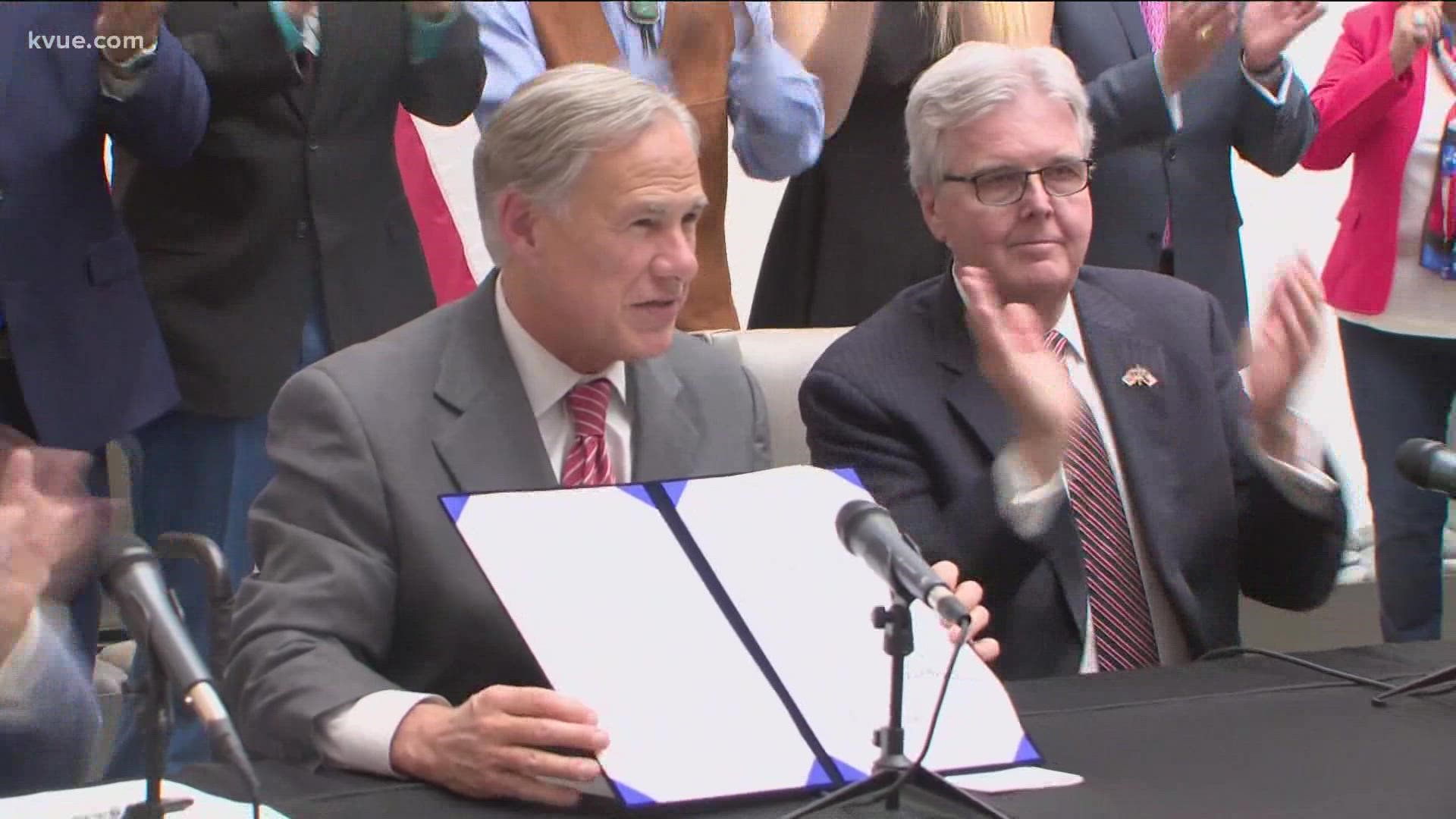AUSTIN, Texas — Texas House Democrats broke quorum twice to delay the passage of what they call a voter suppression bill, but on Tuesday, Gov. Greg Abbott made Senate Bill 1 law.
"It does make it easier than ever before for anybody to go cast a ballot," said Abbott. "It does also, however, make sure that it is harder for people to cheat at the ballot box in Texas."
Before Abbott could put his pen down, several groups filed lawsuits challenging the bill, including the Texas NAACP.
"We think that it makes it more difficult for people to participate in the process, particularly people of color," said chief counsel and senior deputy director for the Lawyers’ Committee for Civil Rights under Law Jon Greenbaum. "This bill has a number of different ways in which it makes it more difficult for people to exercise their fundamental right to vote."
Greenbaum is a lawyer for NAACP and others on the lawsuit. The new law goes into effect in December, but he hopes to have a ruling before next year's primaries.
University of Houston political science expert Brandon Rottinghaus said getting this law overturned won't be easy.
"The case law on this typically favors the State," said Rottinghaus. "The burdens have been made a little bit more challenging in recent cases so that it's harder for people to be able to prove discrimination in these cases."
Election reform became a hot-button issue after Americans voted in record numbers in 2020.
"The fact that this is such a reaction to the notion of election fraud, which is such a rare thing, even according to the attorney general, is obviously connected to the partisanship on this issue," said Rottinghaus.
If Texas's new law stands, Rottinghaus said it could fuel more Democratic voters to rush to the polls.
The law will do the following:
Bans drive-thru voting and 24-hour voting
The bill bans drive-thru voting, which was first used in Harris County during the pandemic, then rolled out by other counties. It also bans 24-hour voting, another measure used in Harris County, and sets very specific hours for early voting.
Sets new hours for early voting
Early voters can have access to the polls from 6 a.m. to 10 p.m. The new legislation also requires counties with a population of 55,000 or greater to offer at least 12 hours of early voting each day during the second week of early voting. That's for state elections.
For local elections, the bill increases required early voting hours from eight to nine each day.
Creates criminal penalty for some mail-in ballot applications
Local election officials can now face felony charges if they send unsolicited mail-in ballot applications to voters. It's still OK for political parties to do so, though.
Adds ID requirements for mail-in voting
Those who do want to vote by mail must now provide their driver's license number or the last four digits of their Social Security number when they're applying for a mail-in ballot and when they send it back in.
Creates new paperwork and expands oath for voter assistance
Anyone who's helping someone fill out their ballot will now have to complete paperwork documenting their relationship to the voter.
The law also changed language in the oath assistants take. It now prevents them from answering questions. Instead, assistants are limited to "reading the ballot to the voter, directing the voter to read the ballot, marking the voter's ballot, or directing the voter to mark the ballot." Stepping outside those guidelines could lead to a perjury charge.
Sets new rules for poll watchers
Partisan poll watchers will have to have training. They can also be kicked out if they violate the state Penal Code.
But the law also gives them "free movement within a polling place," just not at a voting station where a voter is actively filling out his or her ballot.
It's also illegal to obstruct a poll watcher's view "in a manner that would make observation not reasonably effective."
Checks voter eligibility monthly
Each month, the Texas Secretary of State's Office is required to run its voter registration list against DPS's database to remove anyone who is not a U.S. citizen.
PEOPLE ARE ALSO READING:

